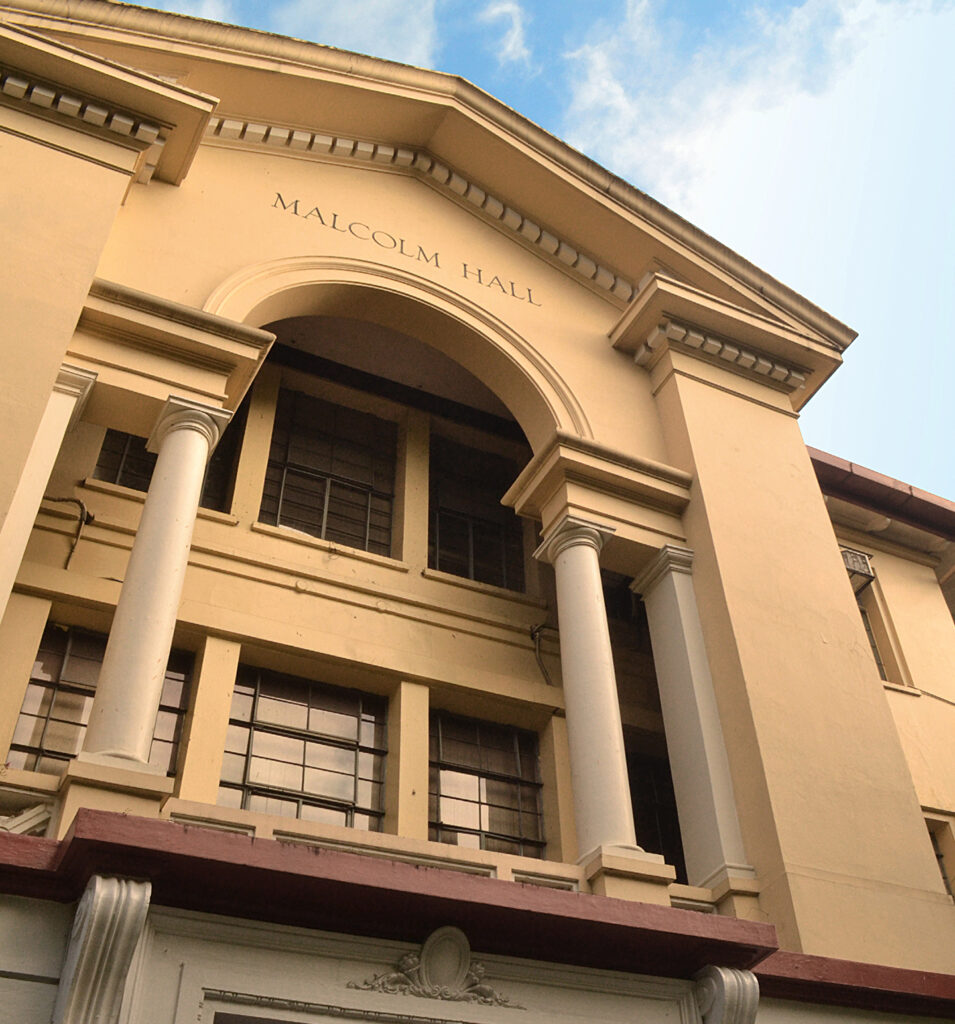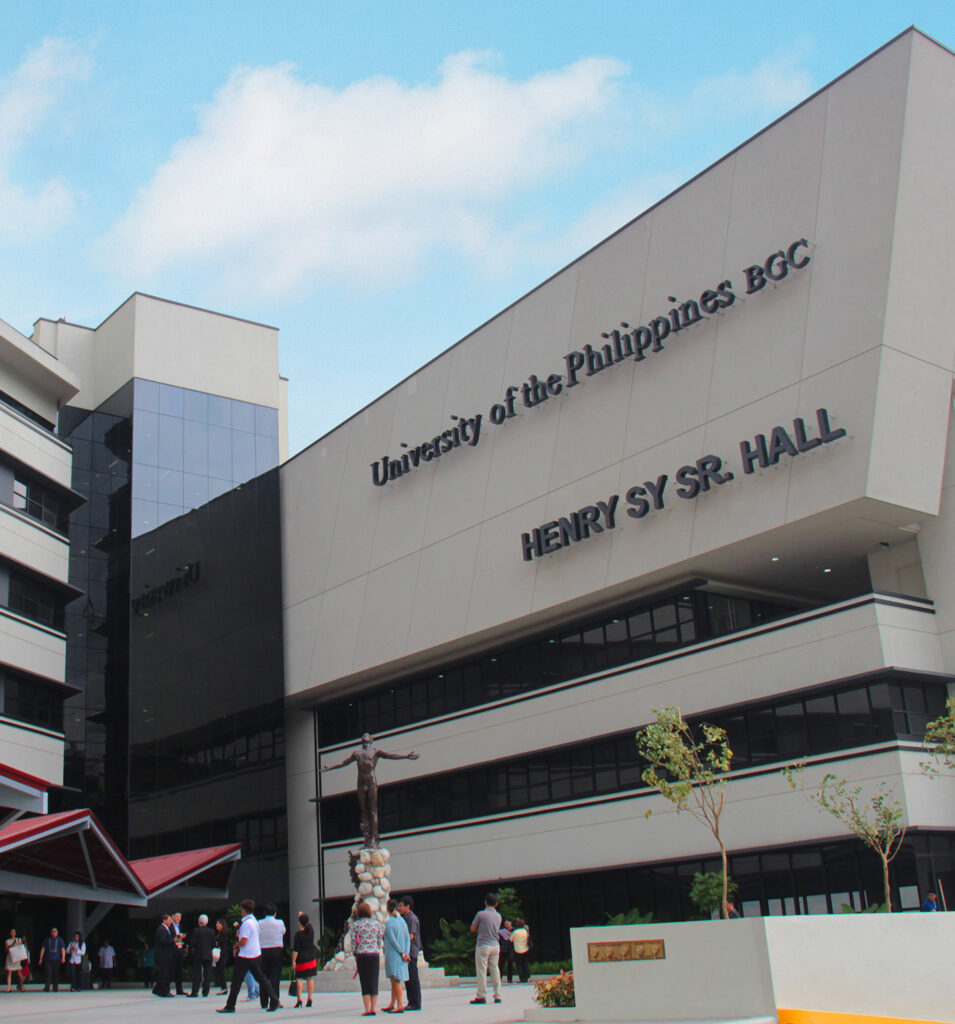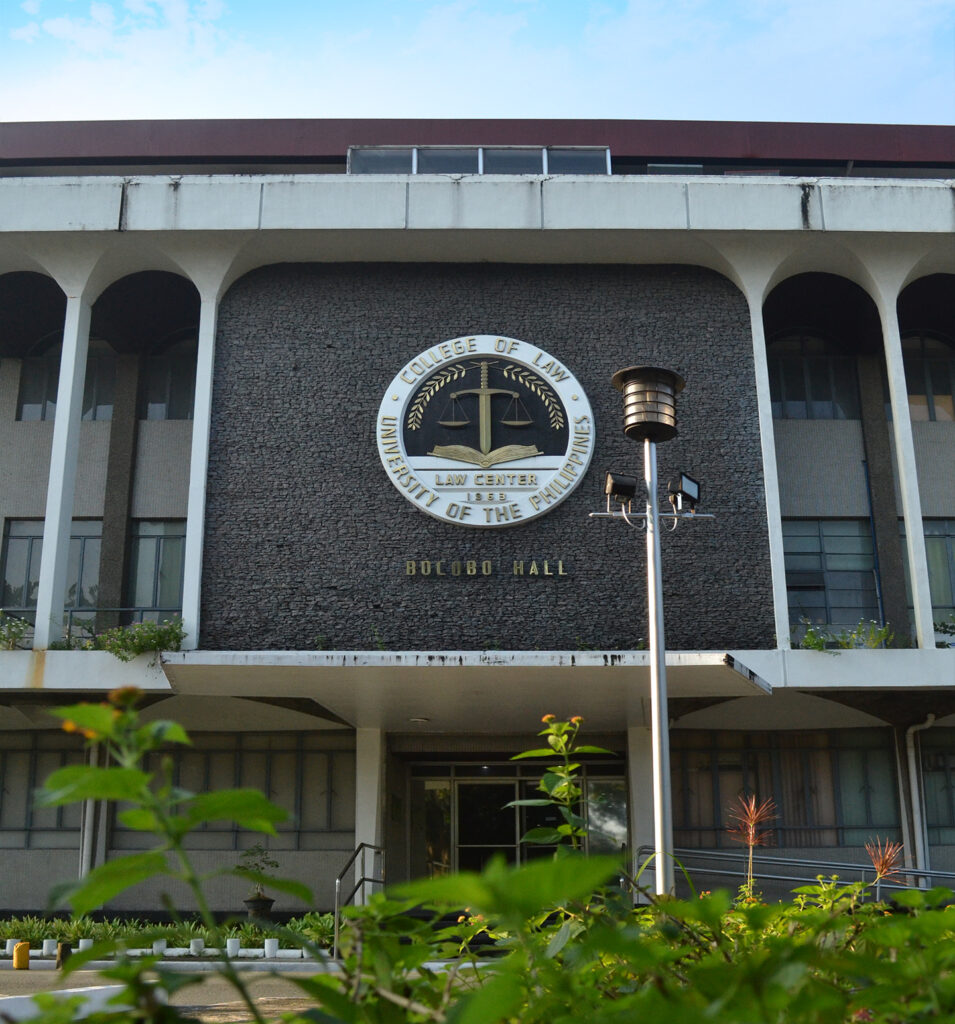UP COLLEGE OF LAW
UP COLLEGE OF LAW
UP COLLEGE OF LAW
The University of the Philippines College of Law is an institution acknowledged for its continuing commitment to academic excellence and service to the public. It marked its centennial year in 2011 as the lead unit of what is now the UP Law Complex. The UP College of Law was among the first seven Colleges established after the foundation of the University of the Philippines on June 18, 1908 through Act No. 1870 of the Philippine Assembly. During its first hundred years, the transformation of the College was from a professional school offering a degree program, to a Law Complex with a triad of functions: 1) instruction, 2) research, and 3) extension service operating under the following mandate:
“The UP Law Complex as an integrated system of national legal institutions within the University of the Philippines shall be dedicated to teaching, research, training, information, and legal extension service to ensure a just society. It shall always be responsive to the challenges of social change, and shall be relevant to the growing legal and other law-related needs of the Filipino people.”
History at a glance. The Board of Regents of the University of the Philippines formally approved the establishment of the College of Law on January 12, 1911 offering first and second year courses. The College, however, traces its beginnings to the law courses opened in 1910 by the Educational Department Committee of the Young Men’s Christian Association (YMCA), through the efforts of George A. Malcolm who was later to become the first Dean of the College.
When the College formally opened its classes a total of 125 students comprising freshmen and sophomores were enrolled. Of this first class, one became a President of the Philippines, and another became the Chief Justice of the Supreme Court, while several others became legislators and legal luminaries. One hundred years since its founding, the College of Law continues to point to its alumni in the highest positions of government with many more graduates as prominent law practitioners, high officials in government service, political leaders, as well as pioneers in private enterprise.
In its early years, the UP College of Law offered a three-year course for students, devoting full time to their studies in the College and a four-year course for working students. The College now offers a four-year course for full-time day students and a five-year course for part-time evening students.
Download the college brochure here for more information.
The UP Law Center, established in 1964 to become the premier legal research institute in the country—was integrated into the College of Law in 1989, marking the transition to what is now known as the UP Law Complex.
The UP Law Complex vigorously pursues academic teaching, research, information, training, policy, and extension services programs designed for educating excellent, socially responsible lawyers and, more importantly, producing impactful research and legal output that affect policy, legislation, and social behavior.
The objectives of the UP Law Complex are:
1. To discover and transmit knowledge of the law so as to achieve distributive justice for all;
2. To train students for the practice of law, instilling in them the ethical responsibilities of the legal profession and the social responsibility to work for the attainment of a just and humane society;
3. To contribute to the improvement of the legal system and the quality and administration of a system of justice in our society for the full protection of human rights;
4. To train lawyers for leadership that is innovative and responsive to the needs and aspirations of the Filipino people; and
5. To develop a new level of legal education with a view to enhancing knowledge of the law on the part of the citizenry, and as part of general education.
Download the Law Center brochure for more information.
VISION
The UP College of Law, together with the UP Law Center and allied units, is the country’s premier academic and research legal institution committed to the rule of law.
MISSION
- To transform our students into highly ethical, exceptionally competent, and socially mindful lawyers by providing them knowledge, skills and values within a learning-conducive environment distinguished by a forward academic program and a deeply invested faculty, administrators, and staff.
- To contribute to a deeper understanding of the rule of law through groundbreaking legal scholarship and committed public service.
QUALITY POLICY
We are committed to a Quality Management System characterized by competence and efficiency in work processes that result in:
- Prompt service;
- Quality output;
- Zero backlog, delay, and wastage of resources; and
- Qualified, competent, and trained personnel.
We remain active in creating opportunities for improving our Quality Management System beyond mere compliance with existing statutory and regulatory requirements.
VISION AND MISSION
VISION AND MISSION
INNOVATING EDUCATION
OPPORTUNITIES
INNOVATING EDUCATION
OPPORTUNITIES
PUBLIC INTEREST OPPORTUNITIES
The public interest law internship program is offered as an elective subject open to sophomore and junior law students. It consists of classroom and internship components. The course seeks to introduce the students to the various theories, methodologies, issues, and skills of public interest legal practice. Upon completion of the classroom component, the students are given actual work experience in public interest law offices such as the Office of the Solicitor General and Office of the Government Corporate Counsel.
OFFICE OF LEGAL AID (OLA)
The Office of Legal Aid administers the clinical education program of the College. It provides free legal assistance to indigent litigants, and takes on public interest cases. Senior year law students are required to put in 126 hours of practicum handling cases in which they interview clients, draft pleadings and briefs, and appear in court under a Supervising Lawyer. The Office is headed by a Director who is a regular (full-time) member of the Law Faculty.
ELECTRONIC LAW SCHOOL
The UP Law Complex is currently developing and implementing its electronic law school infrastructure for both classroom needs and administrative services. It facilitates the exchange of data, information, and analysis between professors and students; and between other Colleges and the University administration.
Click here for more information on our online learning platforms.
UP LAW LIBRARY
The UP College of Law Library serves as the hub of the ‘electronic law school’ of the College. It provides access to an array of electronic data bases to a varied clientele. Housed in a four-storey air-conditioned building, known as Espiritu Hall, the Library is located between Malcolm Hall and the UP Law Center in Bocobo Hall. The UP Law Library is the largest in the country having an extensive collection of books, journals, and Philippine legal materials. It serves not only the students and staff of the College and University but, given the public character of the UP College of Law, also the Congress and other government agencies. Additionally, over the years it has developed a clientele within the legal practice industry.
The collection of the Library includes the Philippine Reports, Supreme Court Reports Annotated, Philippine Digest, complete sets of the U.S. National Reporter System, U.S. Supreme Court Reporter, American Law Reports, and several sets of different state reports, statutes, legal encyclopedias, loose leaf services, casebooks, texts, and treatises. There is an extensive collection of materials on international law and a complete set of the United Nations Treaty Series and League of Nations Treaty Series, and sets of Anglo-American legal periodicals representative of a first-class law school library. Its electronic databases include LexisNexis, Westlaw International, and HeinOnline; and indexes such as WebOPAC and Philippine eLib. The Library also has a notable collection of Spanish law books, a United Nations Document Section, Constitutional Convention Archive, Human Rights Documentation Section, records of the Philippine Martial Law period, ASEAN Law, and Indigenous Law collections.
The Library’s extensive collection of electronic databases contains laws, local and foreign jurisprudence, administrative issuances, international documents, and indexes to foreign periodicals. For search purposes, the Library has its local online public access catalogue system, OPAC.
Visit the UP Law Library website for online resources.
Service Hours:
Monday – Friday, 7:30 am – 9:00 pm / Saturday, 8:00 am – 7:00 pm
UP Law Library, Espiritu Hall, Magsaysay Street
University of the Philippines Diliman, Quezon City 1101
Phone: (+63 2) 8 929 2180 or 8 920 5514 loc.300-302
Email: lawlib.upd@up.edu.ph
Website: http://lawlib.upd.edu.ph/
Facebook: https://www.facebook.com/uplawlib
(Contact the Head Librarian: Mr. Rene B. Manlangit; all visitors welcome)










































































































 on the upper right corner to select a video.
on the upper right corner to select a video.